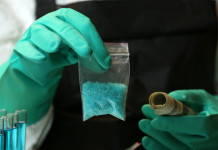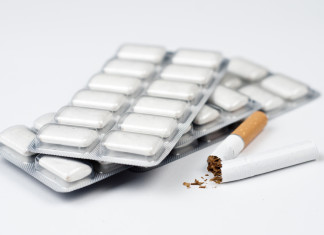Nicotine is regarded as one of the most addictive substances on Earth, but it is legal to use it. This is a chemical produced from a wide variety of plants, the most famous of which is tobacco. This is an extremely addictive substance, and its users experience strong withdrawal symptoms whenever they attempt to stop using it. Many people are curious to know how long does nicotine stay in your system to know about its effects and how long they are likely to be experienced. Millions of men and women around the world face problems with smoking on a daily basis, and the number of smokers are growing at an alarming rate with steady growth in global population. Flushing out this addictive substance is important in order to safeguard the health as well as test negative in tests conducted to determine nicotine presence in companies, armed forces and other important organizations. Knowing how long does nicotine stay in the body and how to accelerate the detoxification process will help you in quitting smoking more quickly.
How Does Nicotine Enter The System
Nicotine most commonly enters the body when cigarette smoke is inhaled. Passive smoking, or inhalation of smoke from cigarettes of others, makes nicotine enter the body only in trace amounts. Once cigarette smoke enters the lungs, it gets into the blood and is dispersed all through the body. As nicotine is a toxin, the kidney metabolizes it. It can be dissolved in water and will get flushed through the liver and expelled through urine. Every cigarette contains about 1 – 2 mg nicotine.
How Long Does Nicotine Stay In Your System
You probably wish to know the answer to this question if you are an avid smoker. Cytochrome P450, a chemical to be found in the liver, processes nicotine. The chemical acts fast and processes in short while, although how fast it acts ultimately depends on the length of time for which you have been using cigarettes and how many of them you have smoked. Typically, a single dose of nicotine is found to persist in the body for just a few hours – generally less than a day. Nicotine mostly gets removed from the body within a couple of days after stoppage of smoking. But this is only part of the story.
There are many physiological effects of using nicotine, which lasts for a long while, and can lead to withdrawal of nicotine and can prevent the waning of its effects. Using menthol cigarettes can reduce the ability of your body to filter the nicotine out. This means that the chemical can stay in the body for a maximum of 72 hours after the last menthol cigarette has been smoked. As nicotine also acts as a vasoconstrictor, it can lead to a rise in blood pressure levels. The tightening of blood vessels generally persists for just 20 minutes after nicotine has been absorbed. However, even after quitting smoking, circulation does not come back to full capacity.
A major reason for the persisting of nicotine in the system for over 72 hours even after stoppage of smoking is the fact that people frequently need to give up the use of nicotine. Both gum and patches depend on nicotine for reducing the cravings. Nicotine acts both as a relaxant and a stimulant, and continuously having it can compel users to go through heightened need of the chemical, and the need sometimes becomes almost manic. They also go through phases of depression.
Most of the nicotine that is present in each cigarette is quickly removed from the body through the urine. It is flushed out so fast, that smokers need to smoke the next cigarette soon in order to get another “kick” of nicotine. But as nicotine gets out of your blood, it manages to stick in various areas of your body. You need around 6 – 8 hours to get out the nicotine of an entire cigarette from your body. But you will have more amount of nicotine in the body in case you smoke heavily. If you have smoked for many years, the chemical will end up getting stored in various areas of your body – such as the fat cells. Once you give up smoking, most of the nicotine should get metabolized in your body and get out of your system within 2 – 3 days. But nicotine can take more time to be completely flushed out, as it sticks to various parts of your system, especially the fat cells. A by-product of the combustion of nicotine, Cotinine, is able to persist in your system for as long as a month.
Factors that Persisting of Nicotine Depends On
The length of time for which nicotine is able to persist in the system tends to vary from one person to another. If you are a habitual smoker of cigarettes, you may need to undergo a drug test. A drug test may be necessary if you work in a company where employees are expected to undergo one.
If you need to know how long is nicotine in your system, first you have to count how many cigarettes you smoke on a daily basis. You will then have to analyze how frequently you smoke and also keep in mind the last time that you smoked a cigarette. This will assist you in assessing your situation and determining it.
The amount of time for which nicotine stays in your body is also based on varied forms of consumption of this chemical. These include Nicotine Replacement Therapy (NRT), smoking cigarettes and chewing tobacco. The process of detection is based on whether you smoke on certain social occasions or can be classified as an addict. In case you have used tobacco constantly over the last 6 months, traces of nicotine can be spotted in your system for around 20 days or even longer. Based on how you much and how long you use nicotine, there are varied levels that can assist you in defining the amount and span of presence of nicotine in your body.
- Light User – If you smoke just once in a blue moon, nicotine will be detectable in your system for just 2 – 3 days after use. The greater the span of time between the test and the last instance of smoking, the lower will be the amount of nicotine that will be detectable in your blood.
- Medium User – Medium users are those who smoke cigarettes only one to three times every week. The quantity of nicotine that will be detected in blood is likely to be a little higher in medium users than in light users.
- Heavy User – You are a heavy user if you are a nicotine addict, or consume nicotine on a continuous basis. In such cases, nicotine will be detected in your body for 10 days or even more after you have consumed it for the last time.
How Long Nicotine Stays In the Urine
If you are interested to know how long does nicotine stay in urine, you should know that nicotine does not generally make itself evident in urine, unlike metabolites like Anabasine. However, it only manifests in urine tests when nicotine has been processed by the body and so it indicates the use of nicotine. You can be tested positive in urine tests for nicotine in case you have smoked cigars or cigarettes, chewed or snuffed tobacco or used nicotine patch, lozenge, gum or any other nicotine replacement product.
As nicotine is addictive in nature and the body system of one person varies from another, it can take shorter or longer time to be processed. Based on how well your system is capable of expelling nicotine and the amount of nicotine replacement product or tobacco that you are using, the range can vary between 48 and 72 hours.
A lot of companies ask candidates to undergo tests for smoking before hiring them. Before the joining date, new employees need to offer a urine sample and get tested for various drugs, which also include nicotine as it is an addictive substance. In case you test positive in drug tests for nicotine, you might not be hired. There are various reasons behind this. Smokers generally use much of the health insurance benefits of groups, which make the insurance premiums for the group greater as a whole. Some of the firms also test the spouses of people to be recruited, due to problems of passive smoking and more.

You might be curious to know how long does nicotine stay in your urine. If you use nicotine only occasionally, you will have the chemical detectable in your system in a urine test for just 3 or 4 days. After this period, no traces of the chemical can be detected in your urine. If you smoke heavily, it can be spotted in your urine for 10 – 20 days. After this, traces of the alkaloid Cotinine in your urine will be minor enough to remain undetectable.
How Long Nicotine Stays in Blood from Chewing Tobacco
Lots of people are habituated chewers of tobacco, and the effects of lasting of nicotine are similar to people who smoke nicotine. If you chew it regularly, it can have a higher concentration. It can stay in your body for 10 days or even more after the time you use it for the last time.
How Long Nicotine Stays in System After Smoking
Drug tests which are conducted in order to detect the possible presence of nicotine in the system of a person typically use urine tests, blood tests and tests of hair samples from the body.
Urine Tests
This is one of the most common and easiest ways of examining the presence of nicotine. If a person smokes less than 3 cigarettes each day, stopping smoking for 3 – 4 days prior to the test will provide his system with enough time to metabolize all of the nicotine that is present in the body. No tests will be able to detect even a trace of nicotine. But it is a costly test, and is typically used by employers of companies who wish to know the status of their employees with regard to nicotine addiction.
Blood Tests
This is more accurate, as compared to a urine test. Nicotine behaves in a certain way when it enters the system, and this test uses this behavior in order to detect its presence in the body. When nicotine enters the blood stream, it transforms into an alkaloid known as cotinine due to some chemical reactions. Metabolic processes cannot remove this alkaloid easily from the body, and it persists for a long while in the system. The tests utilized for detecting nicotine presence in blood concentrates on cotinine, and detect it even when it is present in traces. When you smoke 1 cigarette, 1 mg of nicotine enters your body. When you smoke 15 cigarettes every day, 15 mg or more amount of nicotine is retained in your bloodstream.
Hair Tests
This is an extremely sensitive test, and is able to spot even traces of nicotine in the system. It is able to detect the presence of the chemical in your body even a long time after you have stopped smoking.
Are Blood Tests Able to Detect Nicotine Properly
Sometimes, it becomes essential to measure the nicotine levels of an individual – possibly for insurance, medical or legal reasons. It can reliably be done through blood tests or urinalysis. It is a fact that Blood tests are not evenly successful and do not always offer an accurate result. However, these are able to offer a general picture of whether or not a tobacco product has been recently used by an individual.
You might be interested to know how long does nicotine stay in your blood. When nicotine enters the system, it degenerates into an alkaloid known as cotinine. A blood test intended to detect the presence of nicotine generally measures the level of cotinine in the body. On an average, nicotine has a 2 hour half-life. This means that half of the total amount of nicotine in the body transforms into cotinine after every 2 hours. The half-life of cotinine is around 20 hours.
Given that nicotine is metabolized rapidly by the body, only trace amounts of it can be detected by the body after 2 – 3 days. It may take a maximum of 10 days for Cotinine to be reduced to as small levels as to be practically undetectable by a blood exam.
Nicotine can be undetected by a blood test in case the sample of blood is drawn a 24 hours after the time tobacco has been chewed or smoked by an individual. Those with some forms of liver defects may have cotinine and nicotine show up in blood tests weeks or months after stoppage of consumption.
How to Detoxify Your System of Nicotine
First of all, you need to give up smoking. If you have not quit already, you need to consider giving up smoking seriously by any means possible if you are really strong-willed about getting nicotine removed from your body. You can quit in the following ways.
Consume plenty of water
Drinking enough water can help you to easily flush all traces of nicotine and toxins from your body, which have got accumulated with many years of smoking. You can also get detoxification benefits by consuming herbal teas like peppermint or chamomile tea.
Consume a fiber-rich diet
You need to add enough fiber-rich foods into your daily diet, in order to get your digestive system and intestines cleared of nicotine. The chemical can get your excretory system weakened, and the kidney is needed for effective removal of waste materials from the body. The consumption of fiber can help you to have proper bowel movements regularly, and detoxify your system.
Stick to a healthy diet
You should also stick to a healthy diet, comprising of enough whole grains, vegetables, fruits and foods rich in antioxidants like blueberries. It is important to avoid fried foods, caffeine, soda and alcohol. Intake of foods rich in nutrients and antioxidants can help to repair the damages to the cells due to carbon monoxide present in cigarettes.
Exercises
You should engage in deep-breathing exercises every day in order to make your lungs stronger. Sit in a comfortable, tranquil spot and get yourself relaxed. Deeply breathe in through the nostrils and breathe out through the mouth. Do this for around 5 – 10 minutes.
How to Detoxify Nicotine Faster
Nicotine is similar to any other substance which enters your system, and starts getting metabolized after absorption. Naturally, any activity which boosts your metabolic rate can help to flush out cotinine and nicotine faster from your body. With a proper exercise regimen, you can accelerate the pace of your metabolism and remove the chemical easily from your body. Working out makes your heart rate faster and speeds up your metabolic rate as well as accelerates the speed of burning of calories.
Drinking more water can also help it to get flushed out more easily, as nicotine is soluble in water. Naturally, consumption of plenty of water can help remove any remaining traces of the chemical.
You can also eat more Vitamin-C rich foods and supplements. This vitamin helps boost your metabolism and make the body work faster in removing nicotine from the system. Nicotine also destroys Vitamin C reserves in the body, which makes it important to replenish it after you stop smoking.
How Long Nicotine Stays in Your Body After Quitting
This is actually dependent on lots of factors. Nicotine can be removed from your bloodstream within a comparatively short while, as compared to other drugs such as marijuana which can stay in your urine and bloodstream for more than a month. It can take around 40 times from the time you have smoked for the last time for some of the effects of smoking to go away from your brain. However, most of the effects need quite a few days to be removed from your brain. In other parts of the system, nicotine might still be present.

According to studies on addiction, the presence of nicotine causes some changes to the brain structure of an individual. The receptor sites begin to enjoy the effects that the chemical produces and begins to get habituated to it, and expect more of it after the effects wane off. When the body chemistry of a person goes to this state, he or she becomes addicted to nicotine.
Nicotine can still be present in your kidneys as well as your fatty tissues. The effects of the chemical are likely to be there for as long as 2 – 3 weeks. The length of time for which the effects persist and the intensity of these effects will depend a lot on you, such as on your weight, how long you have smoked, your age, type of your lifestyle and more.
There are lots of cases where professionals might say to you that only the first 3 days after smoking are actually important and it does not matter how long does nicotine stay in the body. This is an important time period where you will experience the worst nicotine cravings. It is during this time that you will find your desire to smoke to be the greatest. With the passage of more days, you will have lesser cravings for smoking. It is better to spend less time around smoker or in places where smokers abound, as it will be easier for you to refrain in such cases and also avoid the entry of nicotine into your system due to passive smoking.
Recovering after Quitting Nicotine Use
According to research, the circulation of a person starts to gets better within 14 days after he or she stops smoking. Within 3 months, the blood vessels gain back most of their usual functioning abilities.
It is important for you to know that stopping the consumption of nicotine all of a sudden can make you experience strong withdrawal symptoms. Quitting smoking needs to be a gradual process, and possibly under the supervision and guidance of a medical expert.
































